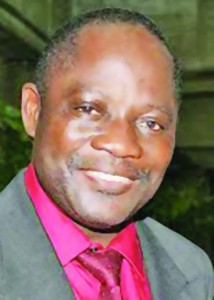Newly-appointed University of Guyana (UG) Vice Chancellor Dr Jacob Opadeyi has revealed several plans aimed at revolutionising the present system and improving the quality of services to students at the university.
Dr Opadeyi, a Nigerian national, who has aroused public ire for his announced tuition increase proposal, said the administration is in the process of rebranding the university to international standards.




